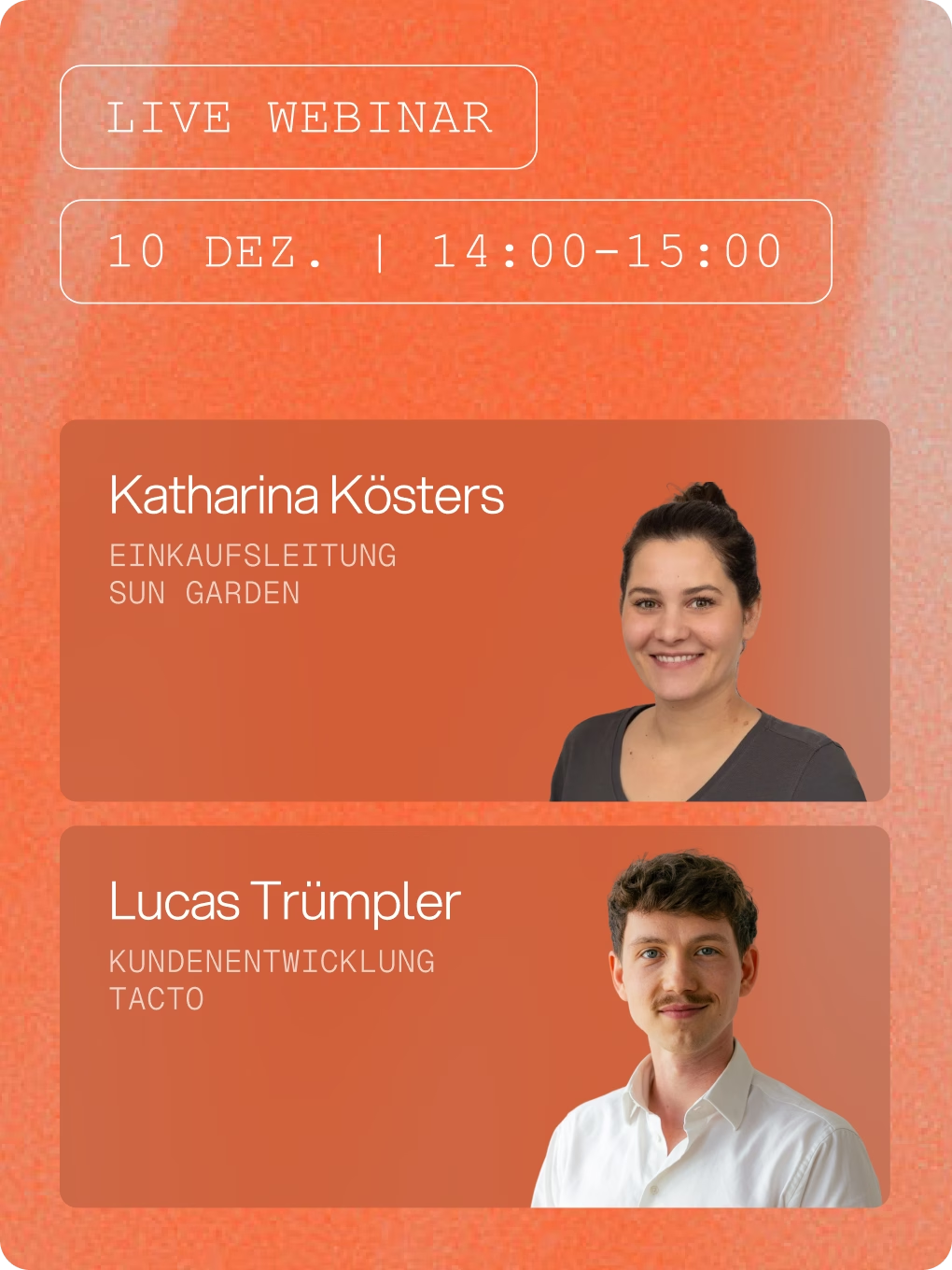Procurement Glossary
Call-off order: definition, application and strategic importance in Procurement
November 19, 2025
A call-off order is a flexible procurement tool that enables companies to call off goods or services as required without having to conclude a new contract for each order. This procedure significantly optimizes procurement processes and reduces administrative costs. Find out below what characterizes a call-off order, which methods are used and how current trends affect this form of procurement.
Key Facts
- Framework agreement with flexible call-off options according to actual demand
- Reduces transaction costs and administrative effort by up to 40%
- Enables better planning security for suppliers and customers
- Particularly suitable for recurring procurements with fluctuating quantities
- Combines cost savings through volume discounts with flexibility in purchasing
Contents
Definition: Call-off order - definition and benefits
A call-off order is a modern form of procurement that combines flexibility with efficiency.
Basic characteristics
A call-off order is a framework agreement between the buyer and supplier that regulates the delivery of goods or services at predefined conditions. The actual purchase takes place as required through individual call-offs. Key features include
- Determination of prices, quality standards and delivery conditions
- Flexible quantity and scheduling
- Simplified ordering processes without renegotiation
- Longer contract terms with regular call-offs
Call-off order vs. individual order
In contrast to individual orders, the call-off order offers strategic advantages. While individual orders initiate each new procurement process, the call-off order creates a continuous framework. This leads to reduced demand determination cycles and optimized purchasing processes.
Importance in modern Procurement
Call-off orders support the procurement strategy by improving supplier relationships and optimizing costs. They enable efficient requirements planning and contribute to the standardization of procurement processes.
Methods and procedure for call-off orders
The successful implementation of call-off orders requires structured procedures and proven methods.
Contract design and framework agreements
The basis is a detailed framework agreement that defines all relevant parameters. Key elements include price structures, quality requirements and delivery modalities. A precise definition of specifications prevents subsequent misunderstandings and ensures uniform standards.
Call-off control and demand management
Effective call-off control is based on precise demand forecasting and systematic monitoring. Modern systems provide support through:
- Automated inventory monitoring and inventory reporting procedures
- Integration into ERP systems for seamless process handling
- Flexible adjustment of call-off quantities based on current requirements
Supplier integration and communication
Successful call-off orders require close cooperation with suppliers. Regular coordination of capacities, delivery times and quality standards ensures supply. Stakeholder management coordinates all parties involved and optimizes communication flows.

Tacto Intelligence
Combines deep procurement knowledge with the most powerful AI agents for strong Procurement.
Important KPIs for call-off orders
Successful call-off orders require continuous monitoring using meaningful key figures.
Cost efficiency and savings
Central cost metrics measure the success of call-off orders. Important metrics include:
- Reduced transaction costs compared to individual orders
- Volume discounts and price advantages through framework agreements
- Administrative cost savings through simplified processes
Delivery performance and service quality
Suppliers are evaluated using performance indicators such as delivery reliability, quality rate and response times. Supply capability indicators monitor security of supply. Average delivery times and flexibility in the event of quantity changes evaluate the adaptability of suppliers.
Inventory optimization and capital commitment
Call-off orders have a significant impact on stock levels and capital commitment. Inventory turnover, inventory range and inventory costs measure efficiency. Optimal call-off cycles minimize both storage costs and shortage risks and maximize capital efficiency.
Risks, dependencies and countermeasures
Call-off orders involve specific risks that can be minimized by taking appropriate measures.
Supplier dependency and single-source risks
Long-term call-off orders can lead to excessive dependence on individual suppliers. Single-sourcing strategies increase supply risks in the event of supplier failures. Countermeasures include dual-sourcing approaches and regular supplier evaluations to minimize risk.
Volume and price risks
Fluctuating demand can lead to oversupply or undersupply. Price volatility for raw materials jeopardizes calculations. Flexible contract clauses and price adjustment mechanisms offer protection. Precise demand analyses improve forecasting accuracy and reduce quantity risks.
Quality and compliance risks
Continuous deliveries require constant quality standards. Clear acceptance criteria and regular quality controls ensure standards. Compliance violations can have legal consequences, which is why continuous monitoring and documentation are essential.
Practical example
An automotive supplier implements call-off orders for standard components such as screws and seals. The framework agreement with three suppliers defines prices for 12 months and enables weekly call-offs based on production plans. Automated stock monitoring triggers call-offs when the reorder level is reached. The result: 35% reduction in transaction costs and 20% lower stock levels with improved delivery reliability.
- Framework agreement with defined conditions and quality standards
- Automated call-off control based on consumption data
- Regular supplier evaluation and performance optimization
Trends & developments around call-off orders
Current developments are shaping the future of call-off orders and opening up new opportunities for efficient procurement.
Digitalization and AI integration
Digital procurement is revolutionizing call-off orders through intelligent automation. AI systems forecast requirements more precisely and optimize call-off cycles. Predictive analytics enables proactive inventory management and significantly reduces storage costs.
Supply chain visibility and transparency
Modern call-off orders integrate supply chain visibility solutions for real-time monitoring. Blockchain technology ensures transparency and traceability. These developments strengthen trust between partners and improve responsiveness to market changes.
Sustainability integration and ESG compliance
Sustainability is increasingly being integrated into call-off orders. Suppliers must meet ESG criteria and call-off decisions take environmental factors into account. Supply chain laws reinforce these requirements and make sustainable procurement a compliance necessity.
Conclusion
Call-off orders are a proven tool for efficient procurement that combines flexibility with cost savings. Digitalization opens up new possibilities for automated control and precise demand forecasting. Successful implementation requires structured contract design, continuous supplier evaluation and proactive risk management. Companies that use call-off orders strategically benefit from reduced transaction costs and improved security of supply.
FAQ
What is the difference between a call-off order and a normal order?
A call-off order is a framework agreement that enables several deliveries to be made at predefined conditions, whereas normal orders represent individual transactions. Call-off orders reduce administrative work and offer better planning security for both contracting parties.
For which procurement categories are call-off orders particularly suitable?
Call-off orders are ideal for recurring purchases with predictable requirements, such as office supplies, standard components or consumables. They demonstrate their strengths particularly when quantities fluctuate but quality requirements remain constant and enable flexible demand coverage.
How is the optimum call-off quantity determined?
The call-off quantity is based on consumption analyses, storage capacities and delivery times. Modern ERP systems provide support through automatic demand determination and reorder point procedures. Regular adjustments based on current market conditions continuously optimize quantity control.
What legal aspects need to be considered for call-off orders?
Call-off orders require precise contract design with regard to minimum purchase quantities, price adjustment clauses and notice periods. Liability regulations and quality standards must be clearly defined. Compliance requirements and documentation obligations must be fulfilled on an ongoing basis.



.avif)

.png)
.png)


.png)




